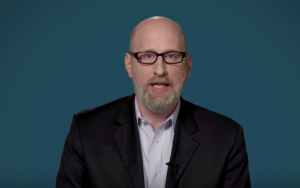
Several days ago David Brooks delivered an interesting and provocative speech to “The Gathering” (which is, roughly speaking, a community of Christian philanthropists). In the course of addressing the strengths and weaknesses of the Christian witness in an increasingly secular age, he made an interesting observation about the type of person the elite’s “achievement culture” cultivates. My apologies, but I need to quote him at some length.
And so this is an achievement culture. A culture of people striving and trying to win success. The way I express this contrast, this hunger for success is by two sets of virtues, which you could call the résumé virtues and the eulogy virtues. And the résumé virtues are the things you bring to the marketplace which you put on a résumé. And the eulogy virtues are the things you get expressed in your eulogy. And these are non-overlapping categories. So the eulogy virtues are to give courage, to give honor, what kind of relationships do you build, did you love. And in my secular culture, we all know the eulogy virtues are more important, but we spend more time on the résumé virtues. Another way to think about this is the book Joseph Soloveitchik, the great rabbi, wrote in 1965 called “Lonely Man of Faith.” He said we have two sides to nurture, which he called Adam One and Adam Two, which correlate to the versions of creation in Genesis. Adam One is the external résumé. Career-oriented. Ambitious. External. Adam Two is the internal Adam. Adam Two wants to embody certain moral qualities to have a serene, inner character, a quiet but solid sense of right and wrong, not only to do good but to be good, to sacrifice to others, to be obedient to a transcendent truth, to have an inner soul that honors God, creation and our possibilities. Adam One wants to conquer the world. Adam Two wants to obey a calling and serve the world. Adam One asks. “How things work?” Adam Two asks, “Why things exist and what we’re her for?” Adam One wants to venture forth. Adam Two wants to return to roots. Adam One’s motto is “Success.” Adam Two’s motto is “Charity. Love. Redemption.” So the secular world is a world that nurtures Adam One, and leaves Adam Two inarticulate.
In the world of politics and ideology, Adam One is swallowing Adam Two. The activists and politicians and cultural ideologues labor mightily to achieve success — to pass this or that program or win this or that cultural skirmish — yet even in victory the soul is left unfulfilled, unsatisfied. But rather than engage in true self-reflection, pondering why even victory fails to bring peace, the activist renews the fight, this time with greater ferocity — convinced that one more win will ease the longing in their hearts. The fight becomes everything, with even the existence of disagreement or dissent a source of deep anger, a sign that more work has to be done.
I can’t help but think this reality helps explain the ferocity that rendered — to take one example — gay activists so intent on purging Brendan Eich from Mozilla, even though (for the time being) they’d won the larger same-sex marriage fight in California. It was as if Eich’s very existence as a successful dissenter in their midst was intolerable. Victory wasn’t enough. More victory was necessary — until there were no more Brendan Eichs in their land.
Christian theology has long understood the tension between the secular and eternal, teaching us the vital need to engage the world, to “take up our cross” in service to God — a service that also includes service to our fellow man — but with the understanding that our own efforts will never be enough to heal the world’s hurts. Until God makes all things right, the poor will always be with us, sin will always be with us, and we must demonstrate grace and charity to even our most bitter of enemies. We must work, yes, but we must also rest in God’s grace and sovereignty, secure in the knowledge that ultimate justice is in His hands alone.
I’ve seen Christians (myself included) lose that hope — not intellectually, but at a deep emotional level. Sometimes, we give in to despair, feeling that a world that was never “ours” is slipping away. Sometimes, we give in to anger, mimicking the ferocity we see in the other side, convinced that equivalent intensity and effort will yield equivalent results. But cultures — and human hearts — are far more complex than that. Effort does not always yield results, especially when that effort directly confronts and opposes man’s sinful nature.
The Christian leaders who’ve been most influential to me speak less of results or achievements than they do of “calling.” We do what we are called to do, as best as we can do it. Or, to paraphrase Stonewall Jackson: Duty is ours, consequences are God’s. In a culture that speaks this language, the achievement-oriented Adam One is subordinated to the transcendent calling of Adam Two. There is no level of earthly greatness worth forsaking your call, and no accomplishment is too small when pursuing that calling. And always — always — knowledge of our own profound limits should remind us of our need to receive grace, and give it to others.
In a bit less than a month, we’ll learn the results of yet another round of intense political and cultural conflict. Nothing will be ultimately settled, and the fight will invariably go on. I’m thankful for Brooks’s reminding me that we cannot lose our character in conflict.
This article first appeared here.
Read more on the Patheos Faith and Family Channel and follow David on Twitter.









